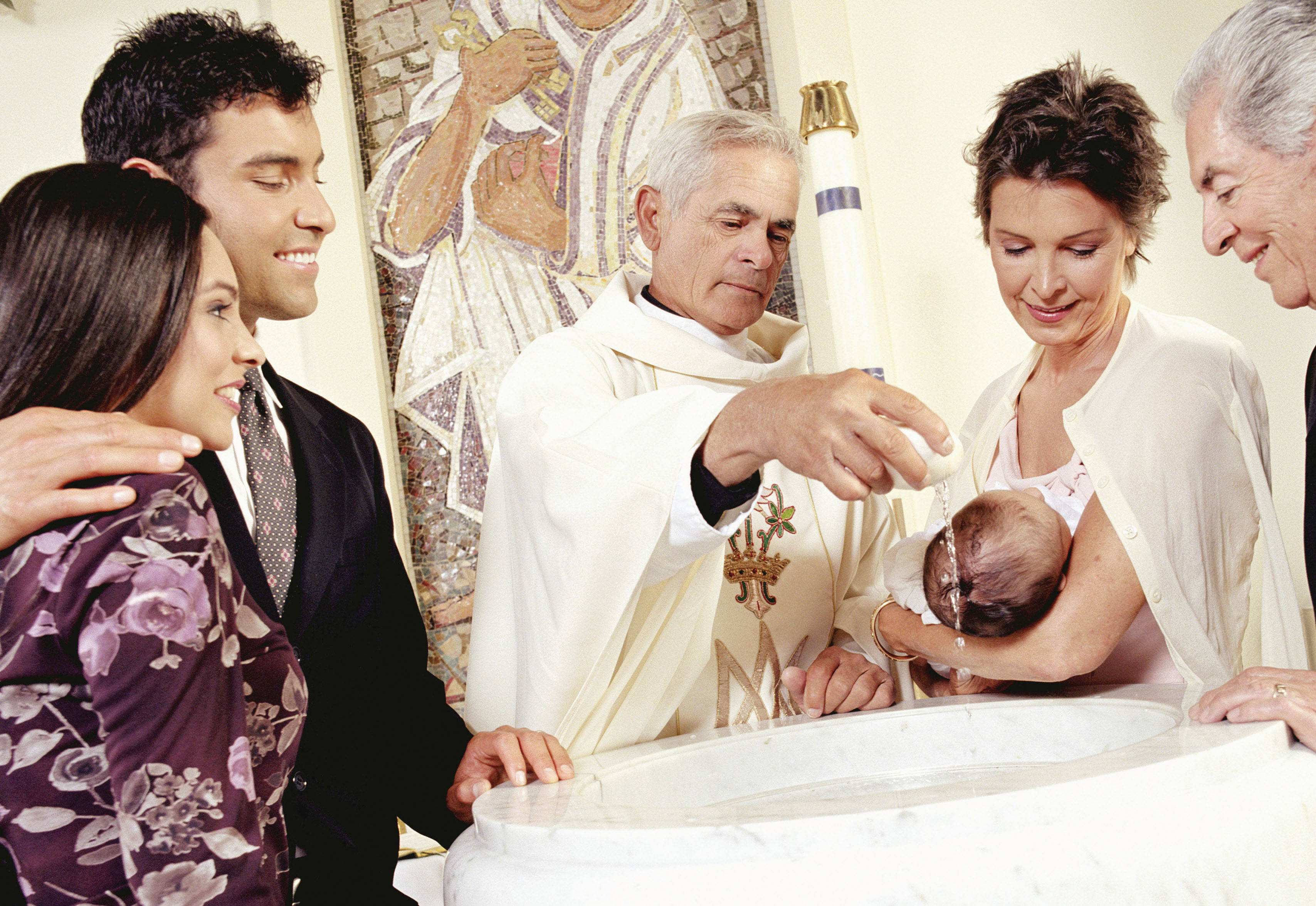Candles, christening gowns and photos are often what we recall when thinking about the sacrament of baptism. Unless we were received into the Church at an older age, most of us have no recall of the actual event. But it is this ritual that is so very important for it is the sacrament that makes us a member of the Catholic Church. The Catechism tells us, “Through baptism we are … reborn as sons of God; we become members of Christ, are incorporated into the Church, and made sharers in her mission.” (CCC 1213). Through the Holy Spirit, baptism unifies us, just as a vine is one with its branches.
All who are baptized, except those who profess to a religious state or receive Holy Orders, comprise the lay faithful. The lay faithful are considered unique because their mission is accomplished by living in the midst of the secular world, meaning they do not merely belong to the Church but are the Church in the midst of everyday living. By the grace of baptism, they share in Christ’s threefold mission as priest, prophet and king in their ongoing daily lives: priest means uniting with the sacrificial offerings of Christ by self-sacrifice in marriage, single life, daily labor, etc. Prophet is inherent with proclaiming the Gospel in both word and deed. Our kingly mission is to spread the Kingdom of God to everyone at all times.
For all baptized, holiness can be achieved by “embracing the Beatitudes, in listening and meditating on the Word of God, in conscious and active participation in the liturgical and sacramental life of the Church, in personal prayer, in family or in community, in the hunger and thirst for justice, in the practice of the commandment to love in all circumstances of life and service to the brethren, especially the least, the poor and the suffering.”
The secular nature of the lay faithful, though unified in continuing the mission of Christ, employs different gifts (charisms) in order to be Christ in the world. Various professions, occupations, life circumstances, cultures, interests, personalities and more emphasize that God “entrusts a vocation unto them that properly concerns their situation in the world.” (par 15) By enriching their individual gifts and abilities and using them to further the Kingdom of God, the lay faithful come to “the vocation of holiness, that is, the perfection of charity. Holiness is the greatest testimony of the dignity conferred on a disciple of Christ.” (par 16)
Holiness, i.e. following and imitating Christ, is the common vocation of all the members of the Church. For all baptized, holiness can be achieved by “embracing the Beatitudes, in listening and meditating on the Word of God, in conscious and active participation in the liturgical and sacramental life of the Church, in personal prayer, in family or in community, in the hunger and thirst for justice, in the practice of the commandment to love in all circumstances of life and service to the brethren, especially the least, the poor and the suffering.” (par 16) For the lay faithful, this happens in the midst of earthly affairs and human activity, the particular method by which they have been called to join themselves with God.
Rose Robertson is a writer and certified spiritual director. She holds a master’s degree in pastoral ministry.
For the complete document visit diolc.org/LayFaithful or Google search Christifideles Laici.

